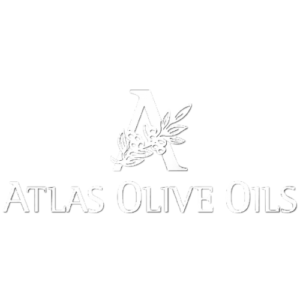Why do Arabs love Olive Oil?
Olive oil holds a revered place in Arab culture, deeply intertwined with the region’s history, religion, and daily life. Its significance transcends mere culinary use, embodying health benefits, economic importance, and profound cultural symbolism. But why does olive oil remain such an essential part of Arab society? Let’s explore the historical, cultural, and practical reasons behind this enduring love.
A legacy rooted in history
The cultivation of olive trees in the Arab world dates back thousands of years, with evidence of olive groves and oil production as early as 3600 BCE. Ancient civilizations, including the Phoenicians and Nabateans, played a significant role in the spread of olive cultivation across the Mediterranean. Even today, many of the world’s oldest olive trees are found in Palestine, Lebanon, and Syria, standing as living witnesses to centuries of tradition and resilience.
In Palestine, for example, the olive tree symbolizes not only economic sustenance but also cultural identity and resistance. The annual olive harvest is more than an agricultural event—it is a time for families and communities to come together, reinforcing the deep social and emotional connection to this sacred tree.
Religious and spiritual significance
In Islam, the olive tree holds a blessed status. The Quran references it multiple times, including in Surah An-Nur (24:35), where Allah describes the olive tree as “neither of the east nor of the west, whose oil would almost glow, even if untouched by fire.” This passage highlights its divine nature and purity.
Prophet Muhammad also emphasized the benefits of olive oil, stating: “Eat olive oil and anoint yourself with it, for it is from a blessed tree.” This religious endorsement has solidified olive oil’s place not only in Arab kitchens but also in personal care and medicinal practices across the Muslim world.
A staple in middle eastern cuisine
From Morocco to the Levant, olive oil is a fundamental ingredient in Arab gastronomy. Its versatility in cooking is unmatched, as it enhances the flavor of countless dishes, including:
- Hummus and Baba Ganoush – Essential dips that rely on high-quality olive oil for their creamy texture and rich taste.
- Manakish Za’atar – A Levantine flatbread topped with thyme, sumac, sesame, and a generous drizzle of olive oil.
- Maklouba – A famous upside-down rice dish where olive oil is used in both the cooking and garnishing stages.
- Harira and Tagines – North African stews that incorporate olive oil for depth and smoothness.
In the UAE, where international cuisine blends with traditional flavors, premium olive oils are increasingly sought after, especially among those embracing Mediterranean and Middle Eastern dietary habits.
The health benefits of olive oil
Beyond its taste, Arabs appreciate olive oil for its numerous health benefits. Rich in monounsaturated fats and antioxidants, it is widely recognized for:
- Heart Health: Studies show that regular consumption of olive oil can reduce the risk of cardiovascular diseases by lowering bad cholesterol and increasing good cholesterol.
- Anti-Inflammatory Properties: Olive oil contains polyphenols, which have been proven to combat inflammation, potentially reducing the risk of chronic illnesses such as diabetes and arthritis.
- Digestive Health: In many Arab households, olive oil is consumed on an empty stomach as a natural remedy for digestive issues and constipation.
- Skin and Hair Care: It is commonly used in Arab beauty rituals, acting as a moisturizer for skin and a nourishing treatment for hair.
Economic impact in the UAE and growing demand
The UAE has witnessed a surge in olive oil consumption in recent years. As one of the largest importers in the region, the country sources olive oils from Spain, Italy, Tunisia, and Palestine. In 2022, the UAE imported approximately USD 28.6 million worth of olive oil, reflecting its growing popularity.
High-end restaurants, specialty grocery stores, and online retailers, such as Giving Oil, cater to an audience that values authentic, high-quality olive oils. Whether for traditional cooking, health-conscious diets, or luxury gifting, olive oil has become a must-have item in UAE households.
Beyond the kitchen: Olive Oil in Arab households
The use of olive oil extends far beyond cooking. In many Arab homes, it is an essential item in daily life:
- Traditional Medicine: Olive oil is used in massage therapies and natural remedies to alleviate joint pain and boost immunity.
- Religious Practices: Some families use olive oil in religious rituals, such as anointing the sick or lighting lamps.
- Homemade Skincare Remedies: Olive oil mixed with honey and lemon is a popular Arab remedy for glowing skin.
Its multi-functional nature ensures that olive oil remains an irreplaceable product in both modern and traditional Arab lifestyles.
Experience premium olive oils with Giving Oil
At Giving Oil, we celebrate this rich heritage by offering a curated selection of premium olive oils from the world’s most esteemed brands. Whether you are looking for robust extra virgin olive oils for cooking or delicate, aromatic oils for finishing dishes, we have something to elevate your culinary experience.
Browse our online store in the UAE and discover olive oils that bring both tradition and quality to your kitchen. Experience the best olive oils today!



































Add comment